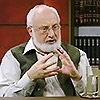Bread With 0% Malchut
 Question: Why did Baal HaSulam and Rabash observe the Pesach customs so carefully?
Question: Why did Baal HaSulam and Rabash observe the Pesach customs so carefully?
Answer: Pesach is the exit from the egoistic desire for myself to the desire to bestow. It is called the exodus from Egypt, where Egypt symbolizes the whole evil inclination, our ego. The ascent above it is the exodus from Egypt.
First we have to perceive it spiritually and not corporeally. But there are customs that we keep in this world because of the connection between the corporeal branch and the spiritual root.
The spiritual root is expressed in different forms of intention and actions of bestowal that we have to perform, which mean actions of giving with an altruistic intention. The acquisition of the ability to bestow is called the exodus from Egypt.
When we operate this way in the spiritual world, we feel which corporeal branches in our world match these spiritual roots. Thus, Kabbalists have determined corporeal customs, as it says in the Torah that during this time we should eat special bread, “bread of affliction,” Matza, unleavened bread.
The difference between Matza and bread is that Matza doesn’t contain yeast; it contains only flour and water. This dough has to be kneaded for a certain length of time: 18 minutes, according to the spiritual properties, 9 Sefirot of the Direct Light and 9 Sefirot of the Returning Light, excluding Malchut. After all, it is Malchut that makes the dough sour, and so we use only 9 Sefirot of the Direct Light and the Returning Light, without Malchut, a total of 18 Sefirot. In our world it is expressed by 18 minutes.
We are allowed to keep the flour and water together for 18 minutes until the dough reaches the oven, which stops the developing connection between them. We don’t add any spice to the Matza, just flour and water.
Matza is the same bread but without the Malchut. It was pulled out of it, so Kabbalists have determined this custom according to the corporeal branch of the spiritual root. All these symbols are reminders of the exit from the ego, of the ascent over it. All the Pesach customs stem from how we feel ourselves in the spiritual roots that are detached from our ego, from the desire to enjoy, and when we move on to the desire to bestow.
There is nothing holy about these corporeal actions, but they are important because of their relation to the spiritual root. In the spiritual world, everyone has to perform these actions, while in the corporeal world, we perform some of them and there are some that we don’t perform.
[131711]
From the 2nd part of the Daily Kabbalah Lesson 4/3/14, Q&A with Rav
Related Material:
Signs Of Disengagement From The Ego
The Mystery Of Passover Night
The Last 50th Gate







Discussion | Share Feedback | Ask a question